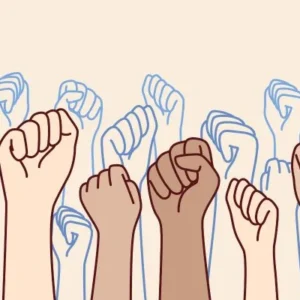An open and inclusive civic space is fundamental to achieving social change, yet it is increasingly under threat in the UK and across the world. Civic space refers to the environment in which civil society can exist and operate, encompassing the political, legal, regulatory, social, and security conditions that shape freedoms of expression, association, assembly, and participation. Civil society plays a vital role in representing marginalized communities, advocating for rights, addressing poverty, and promoting peace and climate justice. When civic space is restricted, organizations struggle to register, secure funding, or participate in policymaking, weakening accountability, transparency, and social inclusion.
Globally, restrictions on civic space have been rising in both democratic and authoritarian contexts. Governments use tools such as excessive reporting requirements, limitations on activities, exclusion from decision-making processes, and even digital repression through surveillance or online censorship. Criminalization of activism using counter-terrorism, public order, and defamation laws has become common, while violence against human rights defenders remains widespread, with hundreds killed each year. Those most at risk are activists and organizations that challenge powerful interests, confront social norms, or represent minority and Indigenous groups. These restrictions often trigger a chilling effect, leading others to self-censor to avoid risks.
The drivers of this global trend include the rise of authoritarianism, counterterrorism frameworks, unchecked corporate influence, and pressures from global instability, conflicts, and the climate crisis. The UK has not been immune, with CIVICUS downgrading its civic space status to “obstructed” in 2023. In recent years, governments have passed anti-protest laws, restricted campaigning, and increased the use of AI surveillance tools. Racial justice, migration, and environmental groups have been particularly affected, with refugee and migrant organizations targeted during race riots and environmental and pro-Palestinian activists facing new protest restrictions.
These restrictions also affect international NGOs operating in the UK. Charities have faced media attacks and scrutiny from regulators for engaging in advocacy on issues like migration, racism, and poverty. Stricter campaigning rules, harsher penalties, and polarized debates have led many organizations to adopt a more risk-averse approach. However, amid aid cuts and ongoing humanitarian crises, some NGOs are beginning to speak out more strongly, often aligning with justice-led approaches and solidarity movements. The erosion of civic space in the UK and globally therefore undermines international development and limits the ability of civil society to drive social change.







